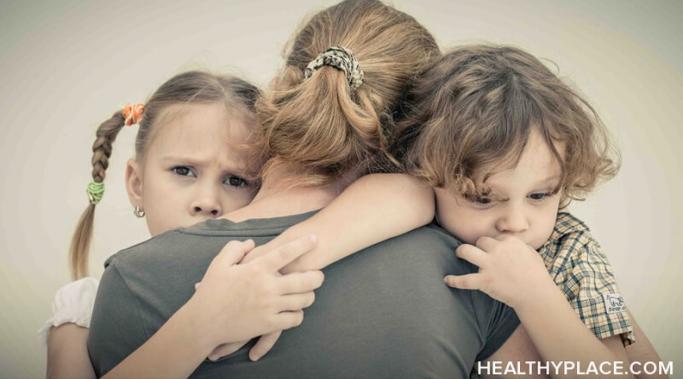Blogs
Recently, I felt pretty darn sorry for myself. It seems that despite my best efforts, I cannot cut ties with Will, my abuser. Just last night, he came to my home to bring me our final divorce papers. He stood in my living room telling a humorous story of how our youngest son attempted to climb a pine tree with parachute gear. He gave my the papers, and I handed him my military ID card.
Marc, our oldest son who now lives with me because his father choked him in a rage, sat quietly on the couch. I saw my son shrinking into the fibers of the sofa and made a mental note that Will is no longer allowed entry to my home. I will speak to Will on the steps or out by his truck; the man's mere presence disturbs the peace.
Rough week? Symptoms flaring up? Consider building a comfort zone as a way to self-soothe and de-stress. Watch this BPD video.
Amanda_HP
The cycle of dysfunction - you grow up in a significantly dysfunctional family and it has an impact on you. Now you have kids and the cycle of family dysfunction continues. Without recognition and positive change, the family dysfunction is passed from generation to generation.
It's a bit daunting to say the word "never", especially when we are referring to depression. Depression has an element of surprise and the benefit of disguise in it's arsenal, but there is a part of me that believes I never have to go back, that I never will experience the darkest depths of depression ever again.
This week began my new status as an "at home" parent. It's also Bob's first time having me around more than usual and not going to before and after-school care. It wouldn't seem like this would be a situation requiring an adjustment period, but it is.
If anxiety has become your unwanted friend - you may already be familiar with the usual suspects when it comes to the causes of anxiety disorders. We have heredity, brain chemistry, personality and life experiences. But have you taken a moment to consider physical causes of anxiety?
Have you ever felt safe?
Maybe that seems like a stupid question, and if it does, consider yourself lucky is about all I can say. My therapist asked me something like it once, and I ended up triggered, taking a 20 minute tangent via Intellectuals 'R Us to pick up a freakin' clue.
Look hard enough at most things in modern life and they are pretty scary.
Panic: Life = risk?
Life = risk? Is that as good as things get?? Well, catastrophizing ever so slightly less, life = many things but in amongst them, inevitably, is an element of risk.
May is Borderline Personality Disorder (BPD) Awareness Month. While there are many sites with excellent clinical descriptions or offer advice for the loved ones of a person with BPD, there is a lack of information on BPD from the point of view of a person with BPD. So, in honor of BPD Awareness Month, here's what BPD is like for me.
In response to some of the comments I see here and elsewhere, here is my response to another ten myths about bipolar disorder.
The signs of verbal abuse are usually invisible to the world outside of your family. Verbal, emotional and mental abuse eats you alive from the inside out. Abuse can do heavy mental damage and cause mental illnesses like depression, anxiety and PTSD. Those illnesses have visible symptoms, but after developing the illness, no one but your closest friends may notice. (If you still have friends after being isolated!)
So, the signs of verbal abuse are often felt instead of seen.







